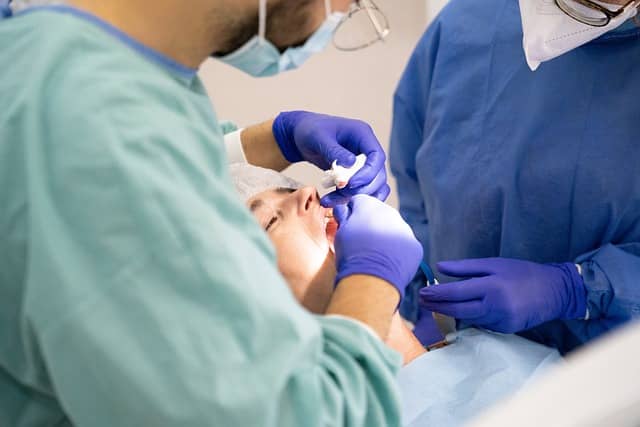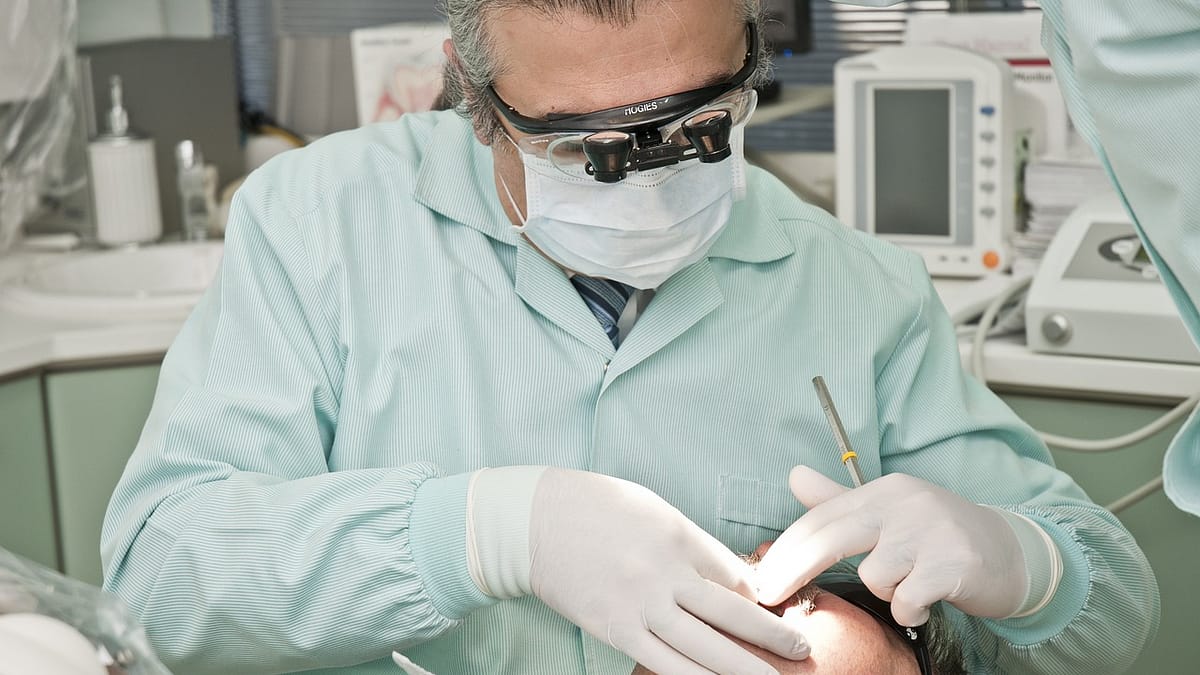A chipped tooth can happen in the blink of an eye. One moment you’re enjoying a crunchy snack, and the next, you’re left with a jagged edge and a wave of panic. It’s not just about aesthetics; it can feel alarming and uncomfortable, too. So, let’s say you’re biting down on something hard or dealing with an unexpected accident during sports. Knowing how to handle this dental pain can save yourself more than you think. Your smile is precious. So, if you live around Manchester, you need to call emergency dentists in Manchester, NH. But in the meantime, find out what your emergency dentist wants you to know about chipped teeth. This way, when you’re faced with this situation, you’ll know exactly what to do.
Size Matters
First, let’s talk about the size. A small chip may seem minor, but even tiny fractures can lead to bigger issues if left untreated. Larger chips are often more concerning since they expose the inner layers of your tooth. This increases the risk of infection and sensitivity. If you notice a significant break, don’t wait too long to seek help. Even with smaller chips, it’s essential not to dismiss them. They can weaken the tooth structure over time. You might find that what started as a harmless imperfection could turn into something much worse without proper care.
Act Fast
The sooner you act, the better your chances are for effective treatment. Delaying can lead to complications like infections or further damage. As soon as it happens, reach out to your emergency dentist. They can provide guidance on what steps to take next and schedule an appointment if necessary. Don’t just ignore it or hope it will fix itself; that rarely works out well. If you’re experiencing discomfort, rinse your mouth gently with warm water. Avoid using hot or cold substances until you’ve seen a professional. Remember, every minute counts when dealing with dental emergencies.
Save the Pieces
If you have a chipped tooth, it’s crucial to save any pieces that come loose. Even small fragments can be important for your dentist. Place the broken bits in a clean, dry container. Avoid using tissues or just paper towels. Why? They can cause damage to the fragments. Handling them with care increases the chances of successful dental repair. The original piece may help your dentist create a more natural-looking restoration. Don’t forget to keep an eye on how your mouth feels throughout this time. If there are sharp edges remaining, they could irritate soft tissue and lead to additional problems.

Pain Isn’t Always Present
A chipped tooth can be misleading. Many people assume that pain accompanies any dental damage. However, that’s not always the case. Sometimes, a chip may occur without any immediate discomfort. The nerve inside the tooth might remain intact, or the fracture could be superficial. This lack of pain can create a false sense of security. Even if you feel like nothing happens at first, don’t wait any longer to seek professional advice. Damage beneath the surface may still pose risks that aren’t immediately obvious. Your teeth deserve attention and care at all times—pain or no pain!
Temporary Fixes Aren’t Enough
You might think that your chipped tooth can simply be fixed using those dental wax or OTC products you saw online. While these methods provide immediate relief, they are merely band-aids. Let me explain. These options won’t restore your tooth’s integrity or function. They may mask discomfort but won’t address underlying issues that could worsen if left untreated. Ignoring professional care can lead to complications, such as infection or further breakage. The longer you delay proper treatment, the more extensive and costly it may become down the line. Seeking professional help from an emergency dentist ensures that your tooth receives the attention it needs. They can offer lasting solutions tailored to your specific situation, safeguarding both your smile and oral health in the long term. So, act fast. Call the best emergency dentist now.…



 One of the most significant health benefits of playing golf is its positive impact on cardiovascular health. Walking the course, which can range between four and six miles, involves considerable physical activity. Walking briskly from hole to hole elevates the heart rate, improving blood circulation and reducing the risk of heart disease. Walking from the cart to the ball or around the greens, even if you use a golf cart, still contributes to physical activity.
One of the most significant health benefits of playing golf is its positive impact on cardiovascular health. Walking the course, which can range between four and six miles, involves considerable physical activity. Walking briskly from hole to hole elevates the heart rate, improving blood circulation and reducing the risk of heart disease. Walking from the cart to the ball or around the greens, even if you use a golf cart, still contributes to physical activity.
 Golf requires good hand-eye coordination, balance, and precise movements, all essential for performing well on the course. Swinging a club involves coordinating multiple body parts to strike the ball correctly, including the hands, eyes, shoulders, and hips. Regularly practicing these movements helps improve coordination and balance, which are critical for daily activities, especially as one ages.
Golf requires good hand-eye coordination, balance, and precise movements, all essential for performing well on the course. Swinging a club involves coordinating multiple body parts to strike the ball correctly, including the hands, eyes, shoulders, and hips. Regularly practicing these movements helps improve coordination and balance, which are critical for daily activities, especially as one ages.
 Fermented foods are teeming with good bacteria that can help to rebalance your gut flora. Some best-fermented foods to incorporate into your diet are sauerkraut, kimchi, yogurt, kefir, and kombucha. You can easily find these items at your local grocery or health food store. But how can these foods help your gut health? The fermentation process breaks down the sugars and complex carbohydrates in the food, which makes it easier for your body to digest and absorb the nutrients. The good bacteria in fermented foods also produce lactic acid, which helps to kill off harmful bacteria.
Fermented foods are teeming with good bacteria that can help to rebalance your gut flora. Some best-fermented foods to incorporate into your diet are sauerkraut, kimchi, yogurt, kefir, and kombucha. You can easily find these items at your local grocery or health food store. But how can these foods help your gut health? The fermentation process breaks down the sugars and complex carbohydrates in the food, which makes it easier for your body to digest and absorb the nutrients. The good bacteria in fermented foods also produce lactic acid, which helps to kill off harmful bacteria. On top of that, intermittent fasting is a great way to give your gut a break. When you fast, your
On top of that, intermittent fasting is a great way to give your gut a break. When you fast, your